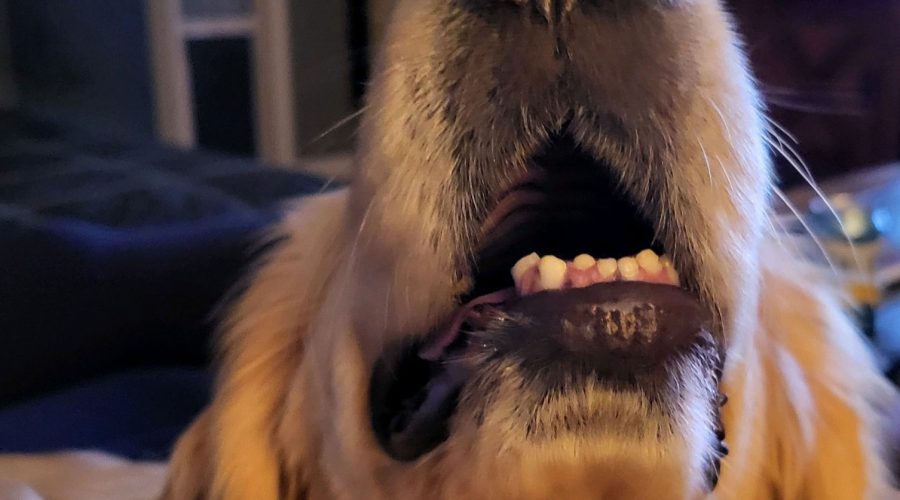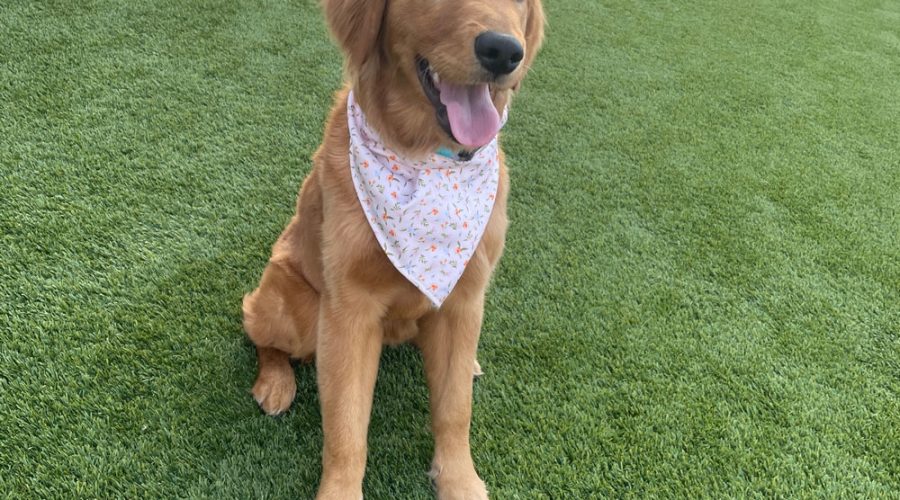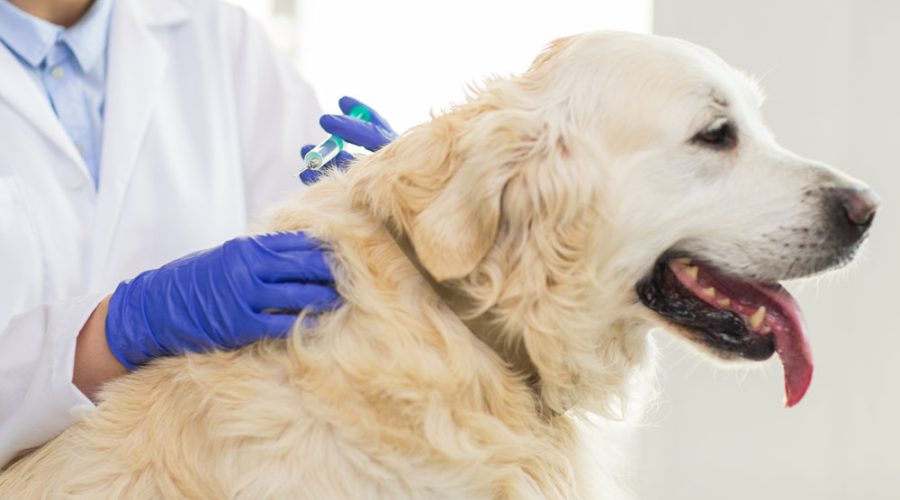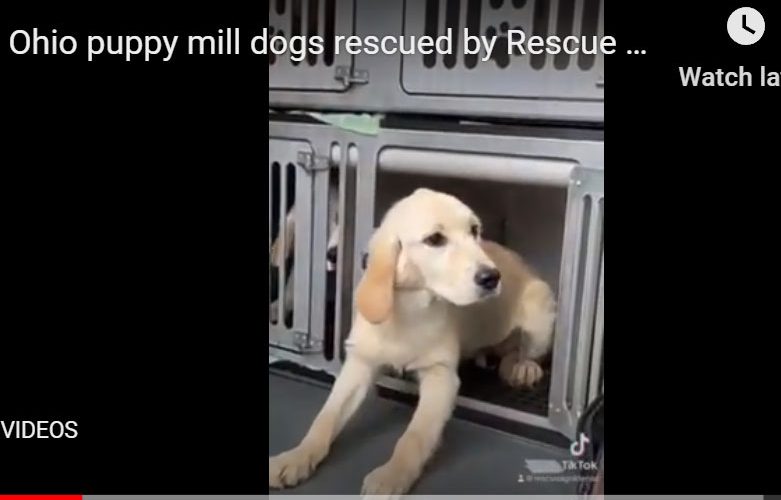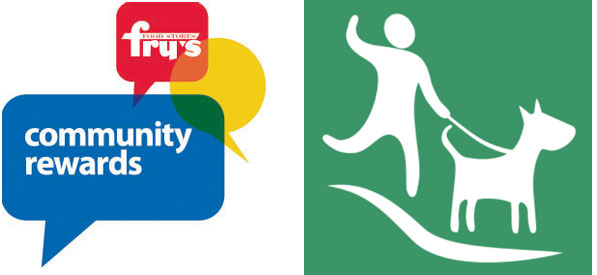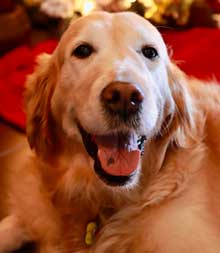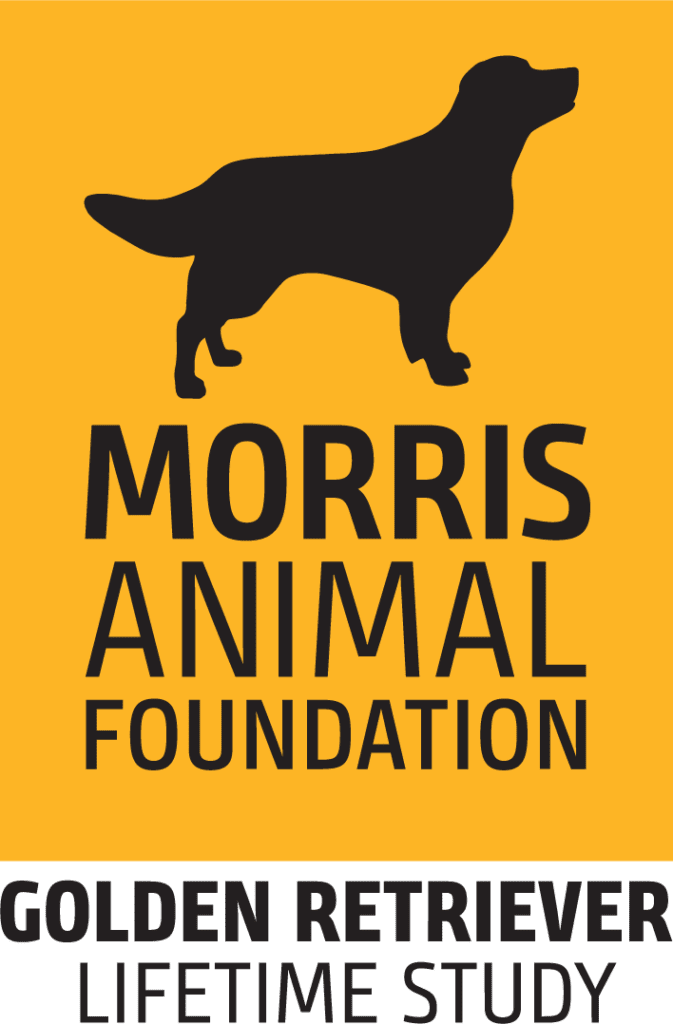What’s so special about this photo?
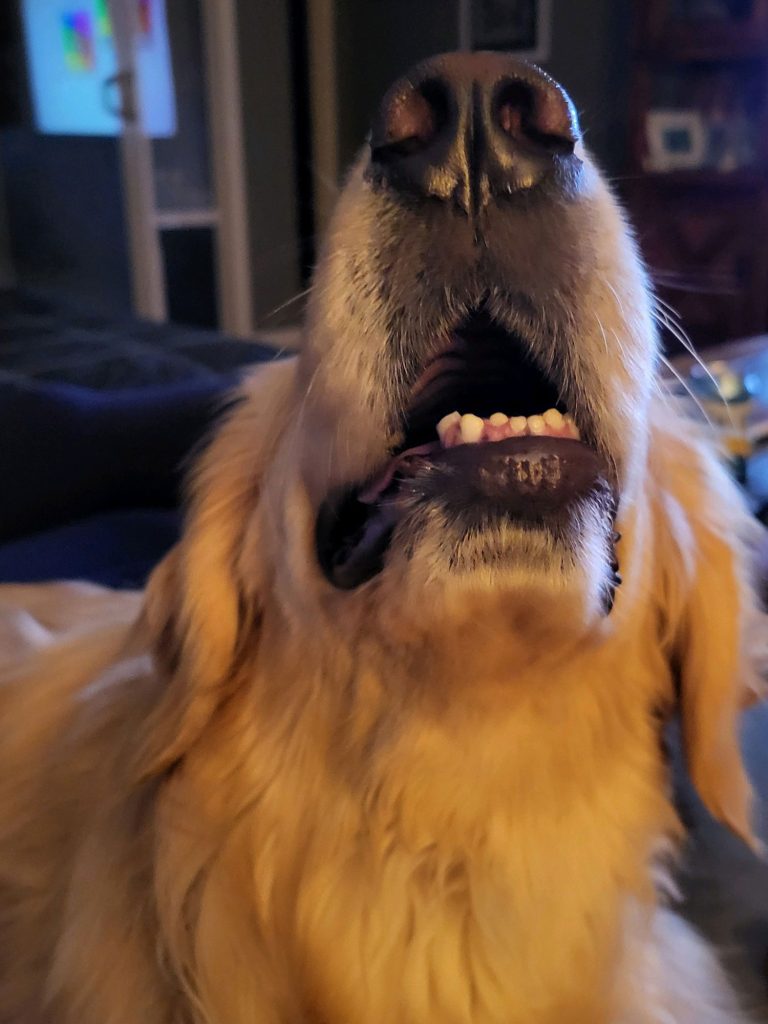
Meet Maisy, formerly known as Luca, who was surrendered to Rescue A Golden of Arizona (RAGofAZ) with her brother, Eddie (now Finley). Both dogs had been inbred and had limited movement of their jaws. For Maisy in particular, this made life not only challenging but life threatening. Intubation was nearly impossible and the threat of choking was terrifying.
Dr. Mele, a highly regarded dental specialist at VCA Valley Animal Hospital and Emergency Center in Tucson, did some ground breaking surgery on Maisy wherein he used a computer generated 3D replica of her jaw to identify the problem and remove the defective part. He is going to Japan for a conference where Maisy and her story will be front and center.
Between Dr. Mele, RAGofAZ and the most dedicated of adopters, this little girl and her brother have brighter futures. Both Maisy and Finley will be featured in our 2025 Hearts of Gold calendar as part of our focus on special needs dogs.
You may find your jaw is open as well with surprise and awe at this amazing accomplishment!
Some Special Goldens are here to Paw it Forward
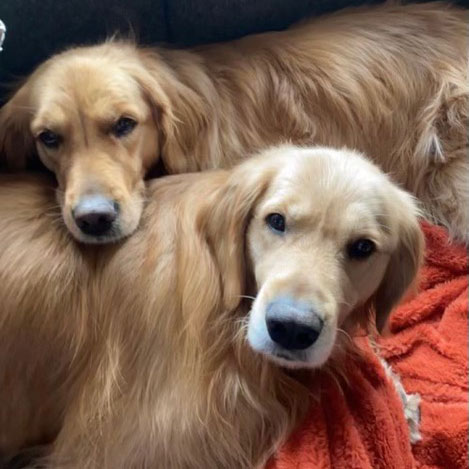
Lexi & Cooper
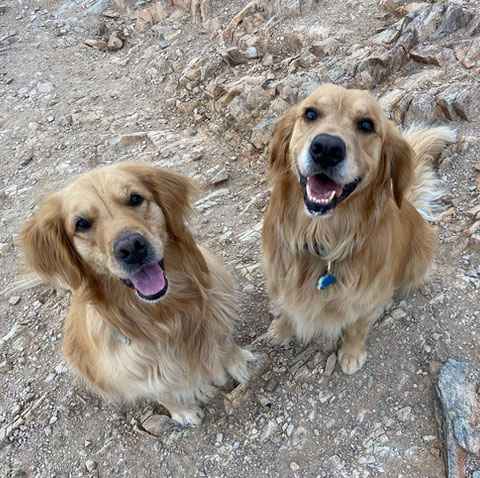
Lexi & Cooper
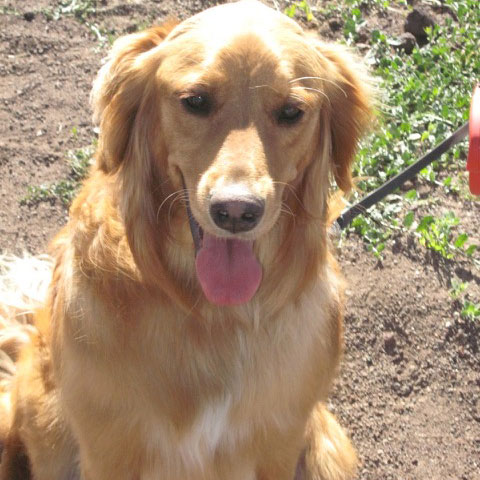
Riley

Our Riley
Some years ago, a gentle, loving, oh-so-sweet Golden Retriever named Riley came into the lives of our Mom and Dad and brought them so much happiness and joy. When Riley journeyed on to Rainbow Bridge, Mom and Dad were so shattered, they thought they might never love another dog in the same way. But after about a year, Riley decided to send me to them – I’m Lexi – followed by my bro, Cooper. Turns out Coop was stuck in China waiting to make his way through red tape hell but eventually he showed up.
We are quite the pair, Cooper and I. I’m a sweetie pie, a carbon copy of adorable Riley. Cooper is a bundle of energy, just wants to play all the time except when he’s begging for belly rubs. He is a little bit naughty, a little bit devilish, but wicked-smart and hilarious. Things have never been the same since Cooper arrived, and life is perfect now. We are the wild man and the love muffin, the yin and the yang, the best and the bestest.
Mom and Dad heard that it costs Rescue A Golden of Arizona about $1,200.00 to rescue a dog and provide veterinarian care like vaccinations, screenings, medicine, and even life-saving surgery. So in gratitude for Riley, Cooper and me, they’ve asked us to pay it forward with an annual donation of $3,600.00 to help save at least three more Goldens. I had to remind them that Cooper and I do not have opposable thumbs so we will have to “paw it forward,” but you get the idea.
We hope this annual gift will help RAGofAZ take good care of those 15 puppies and 7 big Goldens they just rescued. I’m pretty sure someday those pups will grow up and they’ll want to paw it forward too.
Love, Lexi, Cooper, and Angel Riley
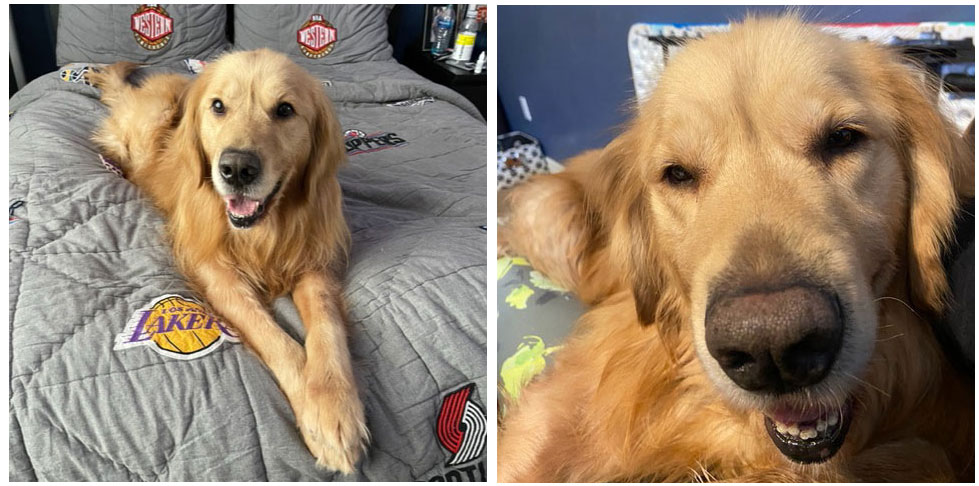
Cooper
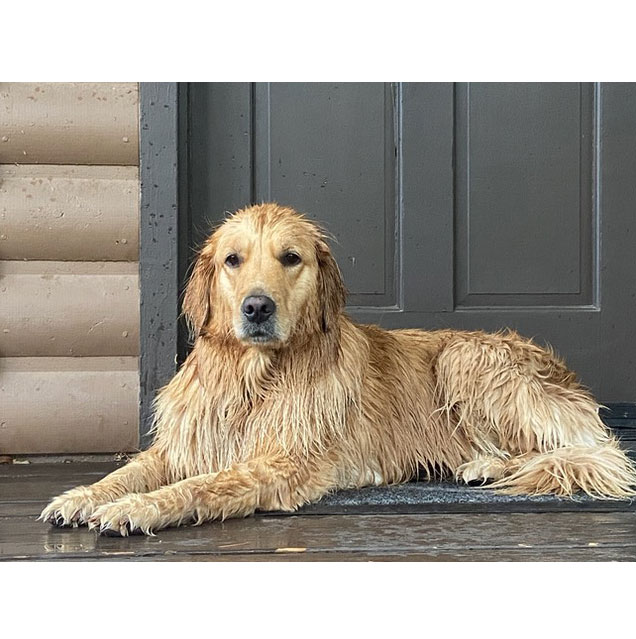
Lexi
after enjoying the jacuzzi at Auberge de Sedona

Lexi
Welcome our 4000th Rescued Golden Retriever!



More than twenty five years ago, a devoted animal lover named Joyce Hubler founded Rescue A Golden of Arizona (RAGofAZ), a non-profit organization dedicated to the rescue, care, and re-homing of abandoned, lost, or displaced Golden Retrievers. Since that day, RAGofAZ has grown into one of the most prominent and successful animal rescues in the state, with more than 700 members. We have even expanded our mission nationally and internationally in support of other rescues in the midwest and several foreign countries.
Now, another milestone … the rescue of our 4000th Golden Retriever!
In February of this year, a beautiful six-month old pup named Charlotte entered our rescue in need of a new forever home. Now renamed Zoey, she possesses all the beauty and charm that make this lovable breed of dog so special. And she will forever hold the title of 4000th rescued Golden Retriever.
On behalf of the hundreds of volunteers who have worked tirelessly for a quarter century to offer 3,999 other Goldens a second chance at life, we welcome Zoey to her forever home.
All for the love of a Golden …
Need lower cost vet care?
 For some time, Rescue a Golden has been sending our rescued Golden Retrievers to Dr. Kelly’s Surgical Unit whenever possible for spay/neuter procedures. They have provided excellent service and care, and their prices are very reasonable. Dr. Kelly’s is also open to the public. They have 3 clinics in the Phoenix area and one in Tucson. If your furry friend needs surgery or dental work and the prices at your regular vet take your breath away, check out Dr. Kelly’s.
For some time, Rescue a Golden has been sending our rescued Golden Retrievers to Dr. Kelly’s Surgical Unit whenever possible for spay/neuter procedures. They have provided excellent service and care, and their prices are very reasonable. Dr. Kelly’s is also open to the public. They have 3 clinics in the Phoenix area and one in Tucson. If your furry friend needs surgery or dental work and the prices at your regular vet take your breath away, check out Dr. Kelly’s.
As they say on their website:
“Dr. Kelly’s offers affordable surgery, low cost and dental care for pets in the Phoenix, Peoria, Mesa, and Tucson, Arizona areas. We are a team of pet owners and veterinarians who believe all pet owners should have access to affordable care for their companions. Our team of qualified veterinarians loves animals. You and your furry companion are in good hands with Dr. Kelly’s.
With thousands of 5-star reviews, you can trust Dr. Kelly’s to take exceptional care of your precious companions.”
Valley Fever vaccine will be available in 2024!
VALLEY FEVER IN THE SONORAN DESERT
Valley fever is a disease caused by a fungus known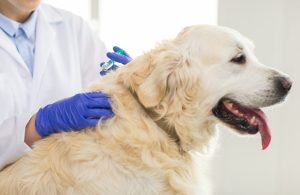 as Coccidiodes immitis. Although the proper name for this disease is coccidioidomycosis, it is most often called valley fever, California disease, desert rheumatism, or San Joaquin valley fever. It is caused by spores in the ground that become airborne.
as Coccidiodes immitis. Although the proper name for this disease is coccidioidomycosis, it is most often called valley fever, California disease, desert rheumatism, or San Joaquin valley fever. It is caused by spores in the ground that become airborne.
Valley Fever (VF) spores are everywhere. Everyone inhales them all of the time. The determination about whether or person or animal contracts Valley Fever from the spores is totally dependent on their immune system.
The symptoms of Valley fever are:
- Lethargy
- Hacking cough
- Lack of appetite
- Lameness
- Fever
Though most cases are caused by inhaling the spores, direct inoculation is also possible. This can result from stepping on a sharp rock or stick that contains the spores. That version of VF is contained within a localized infection and becomes a sore that won’t heal. If your dog presents with something of that nature, do have testing done to eliminate VF as a possibility.
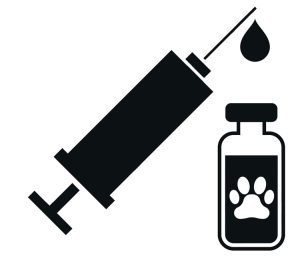 Diagnosing VF is done in a methodical manner by veterinarians:
Diagnosing VF is done in a methodical manner by veterinarians:
- Review animal history and look for clinical signs.
- VF test
- Tests for antibodies—having antibodies does not confirm diagnosis as it may be from an earlier infection.
- IgM antibodies typically develop shortly after an infection, are usually detectable within one to 3 weeks of the onset of symptom and start to disappear at about 5 weeks. As IgM antibodies fade, IgG antibodies set in.
- IgG antibodies can remain detectable for up to a year after treatment. Antibody tests can aid in diagnosing VF as well as helping to differentiate it from other conditions that present with similar symptoms.
- CBC (complete blood count) will test for any other organ deficiencies.
- X rays—VF settles most commonly in the lungs but can also be found in the bones, eye, and brain
- Lung biopsy may be necessary.
The VF test can result in a finding of a titer such as 1:2, 1:4, 1:8, etc. up to 1:256 which is the highest titer that will evidence itself. The VF titer number is most often of little consequence. Dogs with a 1:4 can be symptomatic while a dog with a 1:128 titer may show no evidence of the disease. It all goes back to the immune system of the dog being able to fight or succumb to the disease.
Treatment of Valley Fever
- The primary drug of choice to treat VF is Fluconazole (Diflucan). Fluconazole is the most well tolerated by most animals and can be combined with a number of medications that the dog may already be taking. Fluconazole does not kill the fungus, but only weakens it. Fluconazole is given twice per day and patients usually start to feel better in a few weeks. This is a longer-term medication that typically requires treatment for 8 to 10 months.
- Ketoconazole and Itraconazole are other drugs that may be used alone or in conjunction with Fluconazole.
- Treatment with additional medications to reduce fever will help keep the animal more comfortable. Steroids or appetite stimulants may also be prescribed to help the dog eat.
- Amphotericin B is an injectable treatment for dogs that do not respond to conventional care and are more serious and life-threatening. This drug works by slowing the growth of fungi in the system.
- For typical treatment of VF, after 8 to 10 months, the dog should be taken off the drug for one month and then have a retest.
- Dogs with severe cases especially for those who evidence brain or bone disease may need to remain on fluconazole for life.
Supplements that are promoted to be effective against VF are not. They cannot target VF, nor the t-cells involved with the disease. They may help slightly with immunity but are unlikely to have any real impact.
Any dog breed may develop VF, but Boxers seem to be especially vulnerable. Areas near construction sites can certainly unearth spores. Often after a haboob (dust storm), more cases become evident in 3 months’ time. Rainstorms are responsible for aerosolization of spores giving way to further VF spikes.
The good news is that a Valley Fever vaccine will be available later this year. Dr. Lisa Shubitz, at the University of Arizona Valley Fever Center for Excellence and the doctors at UC Davis in CA have made this possible. At this point, the vaccine will be used to prevent VF, but it may be that it will help in treatment of the disease. The evidence is that it is not just an antibody response but helping the dog’s own white cells do their job. It does not contain a chemical stimulant making it safe for dogs who are immunosuppressed. Veterinary offices and clinics will have more information as time goes on.
Article written by Judy Smith, Vet Team Manager, RAGofAZ
Information courtesy of Dr. Josh Sosnow at North Scottsdale Animal Hospital, Scottsdale, AZ.
December: Meet Ginger
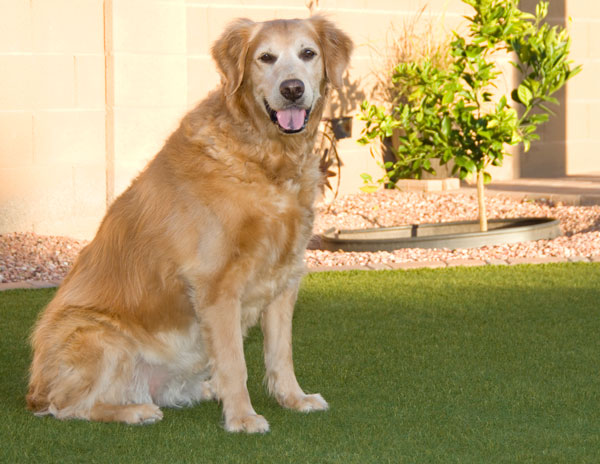
Ginger …. the queen of our household.
Ginger was adopted in July 2013 when she was 7 months old. We already had the name Ginger in mind even before we met her. And guess what, it was perfect! She is as spicy as a chunk of ginger! So here she is……Ginger!
Ginger is not a typical Golden who loves attention, kisses, or hugs from humans all day long. She is super independent and has a very “cool” personality. Like her name Ginger, she was such a wild child from day one. She would destroy everything she could get at in the house, when we were not home. She would make a mess in our backyard by taking things out and chewing them into pieces. Did I mention that she chewed on rocks and dug all day long? Luckily, as time went by, all her bad behaviors just simply went away like magic! Since then, she has grown into a super loving girl showing the true side of Ginger.
We celebrated our 11th Gotcha Anniversary this past July. Ginger is still spicy, but in a goofy way, bringing so much joy, laughter and fun to our family every single day. Since we spoil her so much our family adopts the Golden rule “what Ginger wants, Ginger gets .” This month we celebrate her 12th birthday, and we hope all of you can join us in wishing her much happiness, good health and many more birthdays to come.
November: Meet Fenway
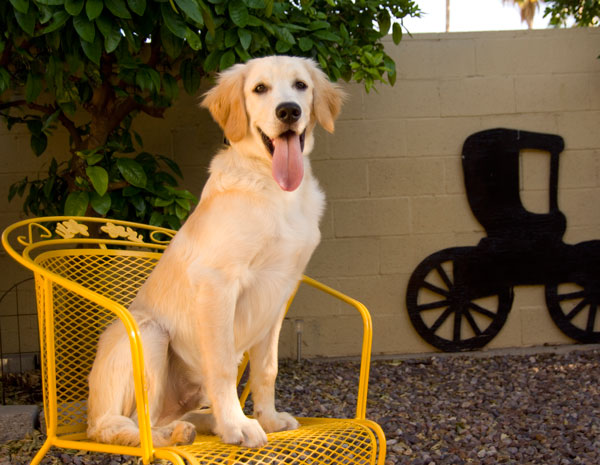
Meet Fenway, named after the iconic Fenway Park.
We had been wanting a puppy for our three year old Golden and Fenway has been amazing for Cooper. My husband has never had a puppy in his life and I knew this would be a life changing experience for him. He tells everyone that this is “his boy.” We just can’t believe how fortunate we are with our fur family.
Fenway was one of Sasha’s babies and on Christmas Eve we got the best present ever with a text asking if we would be interested in one of them. Fenway has brought so much to our family. Besides being extremely handsome, he’s incredibly smart and so loving. We can’t imagine not having him in our lives. His bond with Cooper becomes tighter every day and their love for each other shines. Fenway is the epitome of having the “heart of a Golden.”
We really need to give a lot of credit to Toby & Robin Fox for their love and care during the eight weeks they had him. They are truly amazing.
We can’t thank Rescue A Golden of Arizona enough. We’ve gotten Cooper and Fenway from them and we can hardly express our gratitude in words.

2550 E. Rose Garden Lane # 71987
Phoenix, AZ 85050*
602.404.WOOF (9663) or TEXT 267.538.0433
© Copyright 2024 – Rescue a Golden of Arizona | All Rights Reserved | Privacy Policy | Terms & Conditions | Site by Sitka Creations
